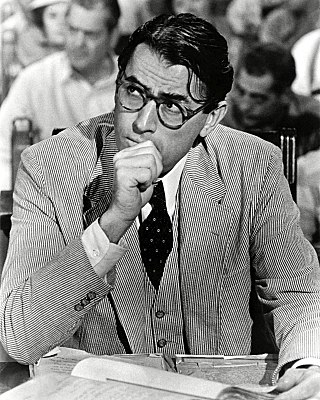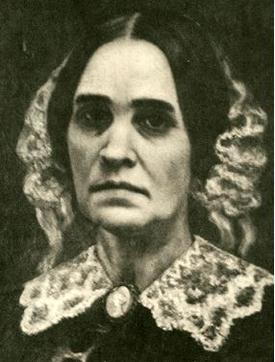
The history of what is now Alabama stems back thousands of years ago when it was inhabited by indigenous peoples. The Woodland period spanned from around 1000 BCE to 1000 CE and was marked by the development of the Eastern Agricultural Complex. This was followed by the Mississippian culture of Native Americans, which lasted to around the 1600 CE. The first Europeans to make contact with Alabama were the Spanish, with the first permanent European settlement being Mobile, established by the French in 1702.

To Kill a Mockingbird is a novel by the American author Harper Lee. It was published in 1960 and was instantly successful. In the United States, it is widely read in high schools and middle schools. To Kill a Mockingbird has become a classic of modern American literature, winning the Pulitzer Prize. The plot and characters are loosely based on Lee's observations of her family, her neighbors and an event that occurred near her hometown of Monroeville, Alabama, in 1936, when she was ten.

Monroe County is a county located in the southwestern part of the U.S. state of Alabama. As of the 2020 census, the population was 19,772. Its county seat is Monroeville. Its name is in honor of James Monroe, fifth President of the United States. It is a dry county, in which the sale of alcoholic beverages is restricted or prohibited, but Frisco City and Monroeville are wet cities.

Nelle Harper Lee was an American novelist. She penned the 1960 novel To Kill a Mockingbird that won the 1961 Pulitzer Prize and became a classic of modern American literature. Lee received numerous accolades and honorary degrees, including the Presidential Medal of Freedom in 2007 which was awarded for her contribution to literature. She assisted her close friend Truman Capote in his research for the book In Cold Blood (1966). Capote was the basis for the character Dill Harris in To Kill a Mockingbird.

Samford University is a private Christian university in Homewood, Alabama. It was founded in 1841 as Howard College by Baptists. Samford University describes itself as the 87th oldest institution of higher learning in the United States. The university enrolls 5,683 students from 47 states, 2 U.S. territories, and 19 countries.

Auburn High School is a public high school in Auburn, Alabama. It is the only high school in the Auburn City School District. Auburn High offers technical, academic, and International Baccalaureate programs, as well as joint enrollment with Southern Union State Community College and Auburn University. Auburn High School is accredited by the Southern Association of Colleges and Schools.

Atticus Finch is a fictional character in Harper Lee's Pulitzer-Prize-winning novel of 1960, To Kill a Mockingbird. A preliminary version of the character also appears in the novel Go Set a Watchman, written in the mid-1950s but not published until 2015. Atticus is a lawyer and resident of the fictional Maycomb County, Alabama, and the father of Jeremy "Jem" Finch and Jean Louise "Scout" Finch. He represents the African-American man Tom Robinson in his trial where he is charged with rape of Mayella Ewell. Lee based the character on her own father, Amasa Coleman Lee, an Alabama lawyer, who, like Atticus, represented black defendants in a highly publicized criminal trial. Book magazine's list of The 100 Best Characters in Fiction Since 1900 names Finch as the seventh best fictional character of 20th-century literature. In 2003, the American Film Institute voted Atticus Finch, as portrayed in an Academy Award-winning performance by Gregory Peck in the 1962 film adaptation, as the greatest hero of all American cinema. In the 2018 Broadway stage play adapted by Aaron Sorkin, Finch has been portrayed by various actors including Jeff Daniels, Ed Harris, Greg Kinnear, Rhys Ifans, and Richard Thomas.
Education in Alabama consists of public and private schools in Alabama, including the University of Alabama, private colleges, and secondary and primary schools.
The Alabama Baptist Convention is an autonomous association of Baptist churches in the state of Alabama formed in 1823. It is one of the state conventions associated with the Southern Baptist Convention.
The history of the Baptist movement in the state of Alabama predates Alabama statehood.

Harold Wayne Greenhaw was an American writer and journalist. The author of 22 books who chronicled changes in the American South from the civil rights movement to the rise of a competitive Republican Party, he is known for his works on the Ku Klux Klan and the exposition of the My Lai Massacre of 1968. Greenhaw wrote for various Alabamian newspapers and magazines, worked as the state's tourism director, and was considered "a strong voice for his native state".

Marie Bankhead Owen was Director of the Alabama Department of Archives and History for over three decades, as well as a documentarian of Alabama history who authored numerous books on the subject. Owen served as an advisor for the Federal Writers' Project history of the state. In 1939, Owen helped select the Alabama state motto. She was actively opposed to a Federal mandate giving women the right to vote, and believed in the supremacy of the white race. Owen was inducted into the Alabama Women's Hall of Fame in 1975. Her niece was actress Tallulah Bankhead.

Poor White is a sociocultural classification used to describe economically disadvantaged Whites in the English-speaking world, especially White Americans with low incomes.

Reuben Francis Kolb (1839–1918) was an Alabama politician. Kolb ran unsuccessfully for governor of Alabama thrice, in 1890, 1892 and 1894, first as a Democrat and then as a Populist. He also served as the state's commissioner of agriculture twice, in 1887 and between 1910 and 1914.
The Alabama Baptist Association (ABA) was an association of Baptist churches founded on 15 December 1819 by four churches: the Antioch Baptist Church and the Baptist churches of Old Elam, Bethel, and Rehoboth.
The Alabama Academy of Honor recognizes one hundred living Alabamians for outstanding accomplishments and services to Alabama and the United States. By act of the Alabama Legislature, only one hundred living people may be members at any time. Up to ten additional members per year are elected by current members when honorees pass away, by majority vote in order of highest vote total. Any Alabama citizen or Academy member may nominate people for election. Living present and past governors of Alabama are automatically members of the Academy and do not count against the 100-person maximum. At any time, no more than twenty-five percent of the Academy's members may be politicians.

Go Set a Watchman is a novel written by Harper Lee before her Pulitzer Prize-winning To Kill a Mockingbird (1960), her only other published novel. Although Go Set a Watchman was initially promoted as a sequel by its publisher, it is now accepted that it was a first draft of To Kill a Mockingbird with many passages in that book being used again.

James H. DeVotie (1814–1891) was a Baptist minister in the American South. Born in Oneida County, New York, he was a pastor in South Carolina, Alabama and Georgia. He was a co-founder of Howard College in Marion, Alabama, later known as Samford University near Birmingham. He was a long-time trustee of Mercer University in Macon, Georgia. He served as a Confederate chaplain during the Civil War. After the war, he worked for the Southern Baptist Convention.

Julia Tarrant Barron (1805–1890) was a founder of Judson College in Marion, Alabama, and Howard College in Homewood, Alabama. She also co-founded The Alabama Baptist newspaper with pastor Milo P. Jewett and donated the land for the construction of the Siloam Baptist Church. She was posthumously inducted into the Alabama Women's Hall of Fame.
Alabama literature includes the prose fiction, poetry, films and biographies that are set in or created by those from the US state of Alabama. This literature officially began emerging from the state circa 1819 with the recognition of the region as a state. Like other forms of literature from the South, Alabama literature often discusses issues of race, stemming from the history of the slave society, the American Civil War, the Reconstruction era and Jim Crow laws, and the US Civil Rights Movement. Alabama literature was inspired by the latter's significant campaigns and events in the state, such as the Montgomery Bus Boycott and Selma to Montgomery marches.














